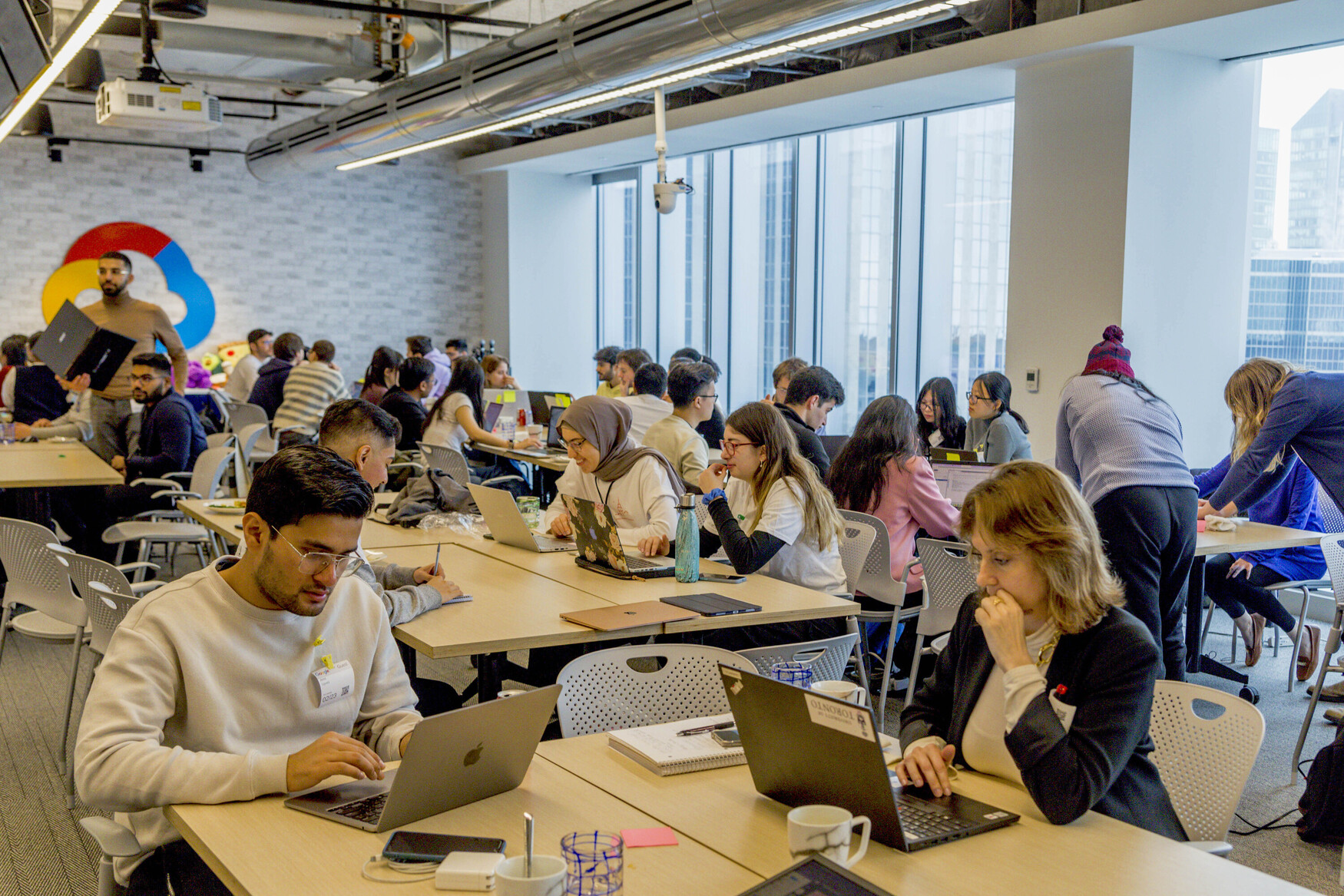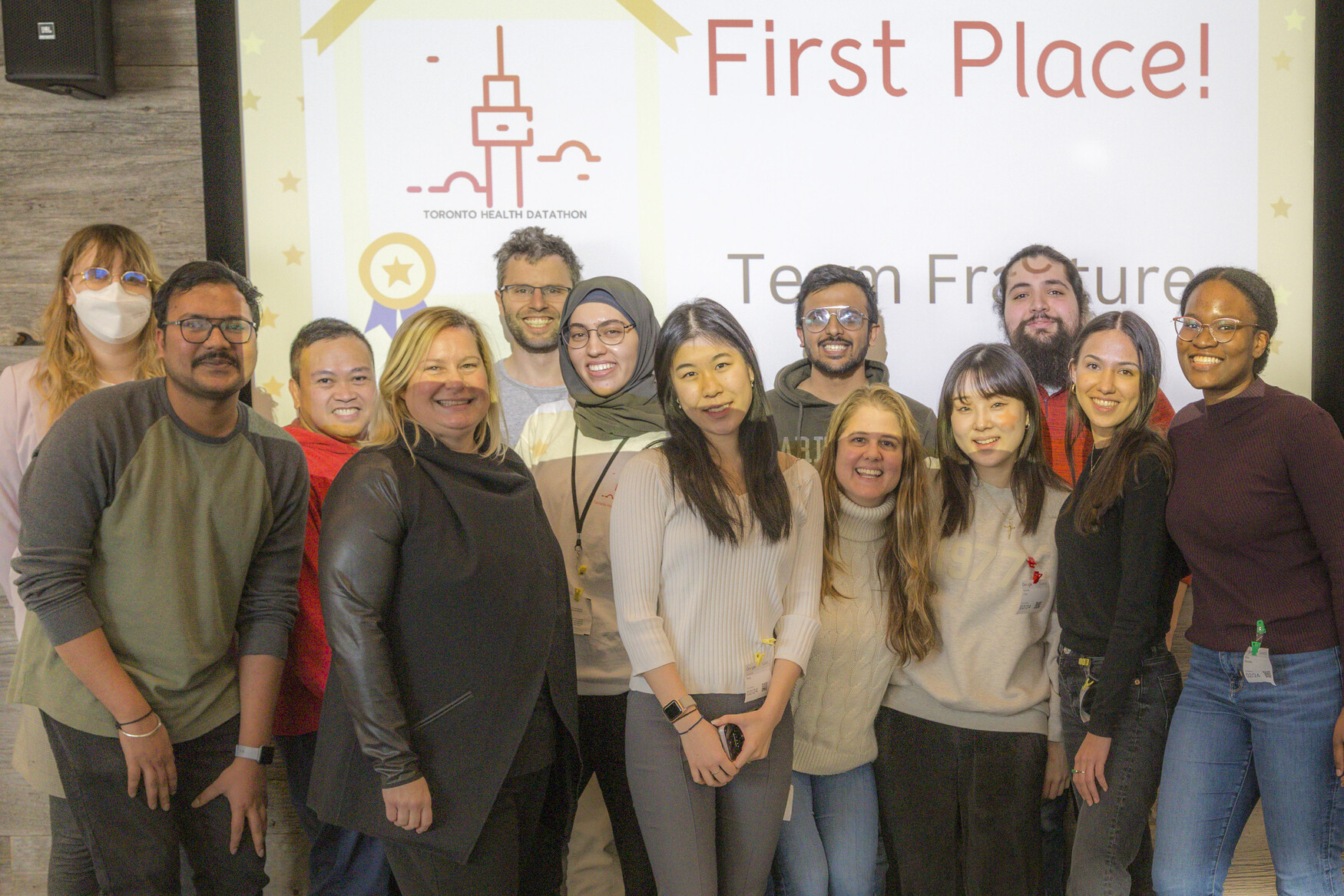Mar 7, 2023
Toronto Heath Datathon gives trainees hands-on experience with real-world datasets
Event marks debut of the T-CAIREM Health Data Nexus to develop machine learning models.

Over 45 participants gathered at the Google Canada offices for the Toronto Health Datathon. Sponsors included T-CAIREM, Google, Memotext, ODAIA and the Vector Institute, using datasets contributed by St. Michael’s Hospital and Trillium Health Partners.

